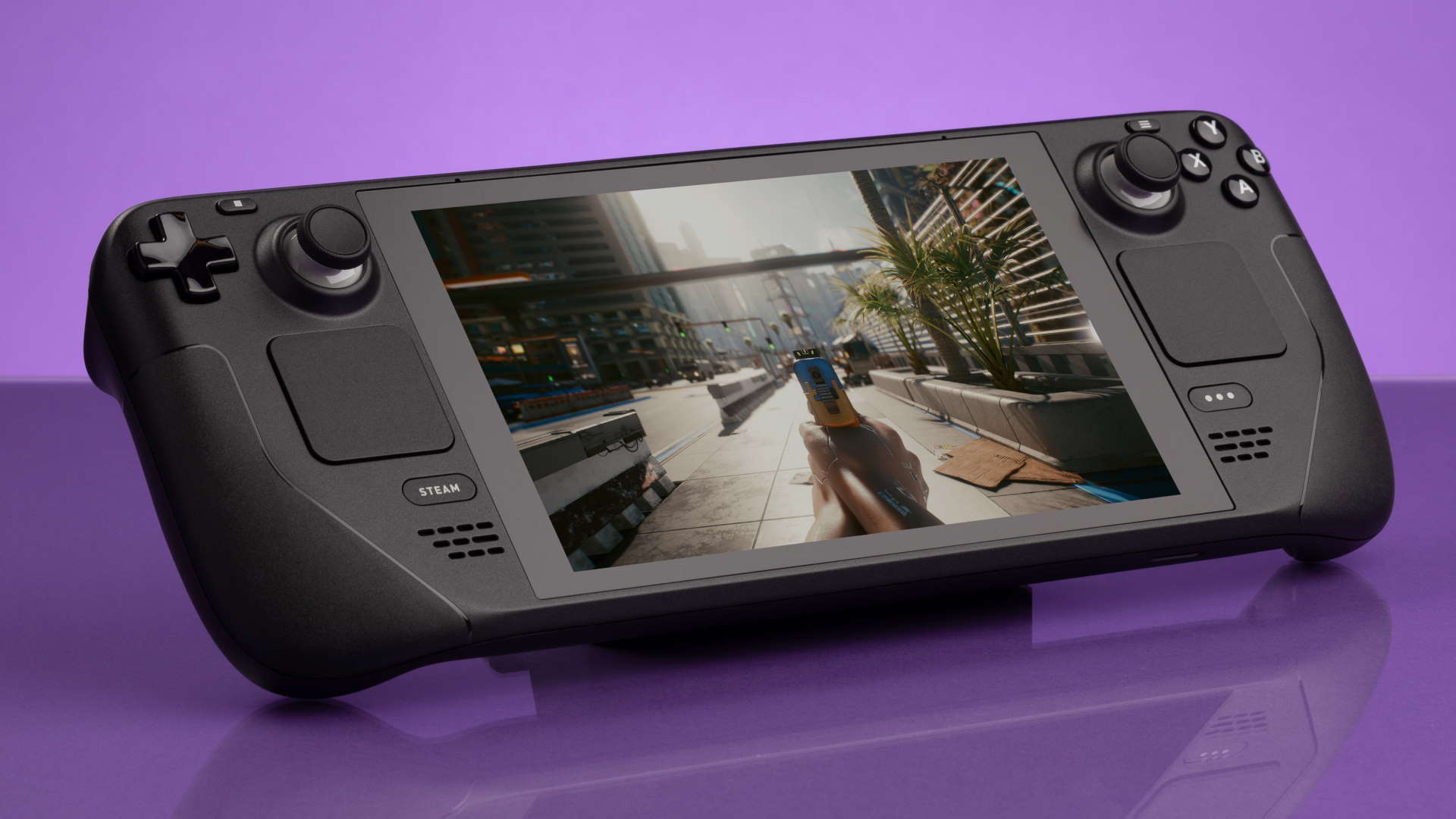The Steam Deck is still 'on track' for February launch, Valve says
Don't be too worried about another delay for Valve's handheld PC.

Production shortages and shipping delays continue to play havoc with the tech industry, but here's a spot of good news: Valve is optimistic that the Steam Deck won't need another delay past its intended launch in February.
"We do feel like we're on track for that," Valve designer Greg Coomer said in an interview with PC Gamer on Thursday. "We're still bummed that we had to move from end of this year to beginning of next. But yeah, all the signs are pointing to us being able to ship in February."
When Valve first opened up pre-orders for the Steam Deck, the shipping estimates quickly shifted from the launch window to many months later, a symptom of the supply chain issues hardware companies are facing. With that in mind I asked Coomer what kind of numbers Valve will actually be able to ship in February.
"It's a real product launch, so many thousands of people right away are going to receive Decks as soon as we're able to ship them," Coomer said. "But even talking about thousands would be quite low compared to the volumes we're shooting for in the first few months."
Valve hasn't disclosed how many Steam Deck pre-orders it's gotten, but Coomer pointed out that the Steam Deck's launch is different than many other hardware launches, where companies need to supply thousands of retail stores. For now the Deck is only being sold through Steam.
"We're going to have a launch that looks like a significant number of users right out of the gate, and then build that over time, rather than having the biggest splash on day one and then generally declining after that," he said. "If you extend the timeline out through 2022 and all the way to 2023, we expect to be building on our numbers constantly throughout that whole time, to the point where there's many millions of customers if things go the way we think they will, who are using Steam Deck by the end of that year or so, through 2023."
The bottleneck for Valve isn't production of the Steam Deck itself, but rather getting all the parts needed for the system. I asked if Coomer could explain the kinds of shortages hardware makers have had to deal with over the last two years, and he said that with the shortages in mind the Steam Deck team identified about 50 components that were "high risk"—potentially difficult to get in the quantities they'd need. Members of the team have been devoted to ensuring they have commitments from manufacturing partners and that those parts will actually show up in time.
The biggest gaming news, reviews and hardware deals
Keep up to date with the most important stories and the best deals, as picked by the PC Gamer team.
"The primary reason we had to move from the end of this year to the beginning of next, is a couple of those parts were really hard to get on time," Coomer said. "They ended up being late. It really came down to just a couple. They're in the category of like, microchip type ICs that are hard to get from multiple sources, and when lots of people are clamoring for those parts—just like cars have had those shortages with specific integrated circuits—we were in a similar situation. We almost got to the point where it was smooth sailing out of all those 50 things, but it wasn't quite the case. So it came down to that."

Wes has been covering games and hardware for more than 10 years, first at tech sites like The Wirecutter and Tested before joining the PC Gamer team in 2014. Wes plays a little bit of everything, but he'll always jump at the chance to cover emulation and Japanese games.
When he's not obsessively optimizing and re-optimizing a tangle of conveyor belts in Satisfactory (it's really becoming a problem), he's probably playing a 20-year-old Final Fantasy or some opaque ASCII roguelike. With a focus on writing and editing features, he seeks out personal stories and in-depth histories from the corners of PC gaming and its niche communities. 50% pizza by volume (deep dish, to be specific).

